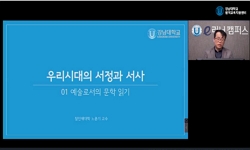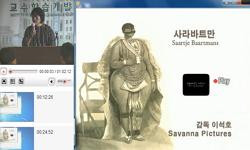1900년 필리핀 병합 이후 미국은 이 새로운 식민지를 통치하기 위해 근대 기술을 사용했다. 미국은 통신, 군사, 건설 기술을 이용해 필리핀의 정치적, 경제적 지형도를 바꿔놓았다. 이 과정에...
http://chineseinput.net/에서 pinyin(병음)방식으로 중국어를 변환할 수 있습니다.
변환된 중국어를 복사하여 사용하시면 됩니다.
- 中文 을 입력하시려면 zhongwen을 입력하시고 space를누르시면됩니다.
- 北京 을 입력하시려면 beijing을 입력하시고 space를 누르시면 됩니다.

The Colonial Effect of U.S. Modern Technologies = Focusing on Carlos Bulosan’s America Is in the Heart
한글로보기https://www.riss.kr/link?id=A101850680
- 저자
- 발행기관
- 학술지명
- 권호사항
-
발행연도
2015
-
작성언어
English
-
주제어
Carlos Bulosan ; modern technologies ; modern time-space ; narrative ; autobiography studies ; 카를로스 블로산 ; 근대 기술 ; 근대 시공간성 ; 서사 ; 자서전 연구
-
등재정보
KCI등재후보
-
자료형태
학술저널
- 발행기관 URL
-
수록면
1-24(24쪽)
-
KCI 피인용횟수
0
- 제공처
-
0
상세조회 -
0
다운로드
부가정보
국문 초록 (Abstract)
1900년 필리핀 병합 이후 미국은 이 새로운 식민지를 통치하기 위해 근대 기술을 사용했다. 미국은 통신, 군사, 건설 기술을 이용해 필리핀의 정치적, 경제적 지형도를 바꿔놓았다. 이 과정에서 다수의 필리핀 토착민들이 전통사회에서 분리된 후 이주 노동자 신분으로 미국 사회에 흘러들었다. 필리핀 노동자들은 미국사회의 최하층에 위치하는데, 이는 이들이 근대 기술사회로 재편되던 흐름에서 소외됐기 때문이다. 이러한 이유로 필리핀 노동자들은 알래스카의 연어 통조림 공장이나 미 서부농장에서 저임금 노동의 착취대상이 된다. 이 논문은 카를로스 블로산 (Carlos Bulosan)이라는 필리핀계 미국 작가가 이주 노동자로서 자신의 경험을 바탕으로 기록한 『미국은 내 마음에』(America Is in the Heart)를 분석한다. 블로산의 자서전에서 묘사되는 하층 이주민의 이동을 서구 근대기술과의 관계에서 포착하는 것이 이 논문의 쟁점이다.
다국어 초록 (Multilingual Abstract)
The United States had employed modern technologies to effectively redistribute Filipino nationals since 1900 afterward. Using technologies in communication, the military, and architecture, the US War Department in particular transformed the political ...
The United States had employed modern technologies to effectively redistribute Filipino nationals since 1900 afterward. Using technologies in communication, the military, and architecture, the US War Department in particular transformed the political and economic landscapes of the Philippines. This colonial oppression destabilized the Philippines that Filipino civilians became dislocated from their traditional society and flowed into U.S. society as migrant workers. In the United States, Filipino migrants as colonial, racial minorities were situated at the lowest rung of society because they were systematically alienated from a technology-based structure. They thus labored in segregated spaces such as Alaskan canneries or western farm areas. Among others, this paper examines Carlos Bulosan who moved to the West Coast of the United States in 1930 and represented his experience into life narrative, America Is in the Heart (1946). His literature captures the repercussions of U.S. colonization that utilized modern technologies to restructure Filipino subjects. In this article, I claim that modern technologies can be a critical perspective to understand the mobility of Filipino subjects.
목차 (Table of Contents)
- Ⅰ. Introduction
- Ⅱ. Changes that Modern Technologies Brought to American Society
- Ⅲ. Living as a Second-Class Citizen under U.S. Colonization
- Ⅳ. Filipinos as Racial Minorities in the U.S.
- Ⅴ. Conclusion
- Ⅰ. Introduction
- Ⅱ. Changes that Modern Technologies Brought to American Society
- Ⅲ. Living as a Second-Class Citizen under U.S. Colonization
- Ⅳ. Filipinos as Racial Minorities in the U.S.
- Ⅴ. Conclusion
- Bibliography
- 국문초록
참고문헌 (Reference)
1 Duque, Estela, "“Militarization of the City: Implementing Burnham’s 1905Plan of Manila.” Fabrications" 19 (19): 48-67, 2009
2 Friedman, Susan Stanford, "Women, Autobiography, Theory" U of Wisconsin P 72-82, 1998
3 Hemmings, Clare, "Why Stories Matter: The Political Grammar of Feminist Theory" Duke UP 2011
4 Rafael, Vicente L., "White Love and Other Events in Filipino History" Duke UP 2000
5 Brody, David, "Visualizing American Empire" U of Chicago P 2010
6 Newell, Dianne, "The Rationality of Mechanization in the Pacific Salmon-Canning Industry before the Second World War" 62 : 626-655, 1988
7 Kern, Stephen, "The Culture of Time and Space: 1880-1918" Harvard UP 2003
8 Harvey, David, "The Condition of Postmodernity: An Inquiry into the Origin of Cultural Change" Wiley-Blackwell 1991
9 Kramer, Paul Alexander, "The Blood of Government: Race, Empire, the United States, and the Philippines" U of North Carolina 2006
10 Takaki, Ronald, "Strangers from a Different Shore" U of California P 1998
1 Duque, Estela, "“Militarization of the City: Implementing Burnham’s 1905Plan of Manila.” Fabrications" 19 (19): 48-67, 2009
2 Friedman, Susan Stanford, "Women, Autobiography, Theory" U of Wisconsin P 72-82, 1998
3 Hemmings, Clare, "Why Stories Matter: The Political Grammar of Feminist Theory" Duke UP 2011
4 Rafael, Vicente L., "White Love and Other Events in Filipino History" Duke UP 2000
5 Brody, David, "Visualizing American Empire" U of Chicago P 2010
6 Newell, Dianne, "The Rationality of Mechanization in the Pacific Salmon-Canning Industry before the Second World War" 62 : 626-655, 1988
7 Kern, Stephen, "The Culture of Time and Space: 1880-1918" Harvard UP 2003
8 Harvey, David, "The Condition of Postmodernity: An Inquiry into the Origin of Cultural Change" Wiley-Blackwell 1991
9 Kramer, Paul Alexander, "The Blood of Government: Race, Empire, the United States, and the Philippines" U of North Carolina 2006
10 Takaki, Ronald, "Strangers from a Different Shore" U of California P 1998
11 Smith, Sidonie, "Reading Autobiography" U of Minnesota P 2010
12 Mitchell, W. J. T., "Picture Theory: Essays on Visual and Verbal Representation" U of Chicago P 1994
13 Said, Edward, "Orientalism" Columbia UP 1978
14 Friedland, Roger, "NowHere: Space, Time, and Modernity" U of California P 1995
15 Lowe, Lisa, "Immigrant Acts" Duke UP 1996
16 Espiritu, Yen Le, "Filipino American Lives" Temple UP 1995
17 Bulosan, Carlos, "America Is in the Heart" U of Washington P 1946
18 Capozzola, Christopher, "Afterburn: Knowledge and Wartime" 77 (77): 811-826, 2010
19 Holman, C. Hugh, "A Handbook to Literature" v-vi, 1960
동일학술지(권/호) 다른 논문
-
- 경성대학교 인문과학연구소
- 김지훈(Kim, Ji-Hun)
- 2015
- KCI등재후보
-
노마디즘의 시각으로 본 영화 〈길소뜸〉의 여성인물 연구
- 경성대학교 인문과학연구소
- 이경란(Lee, Kyung-Ran)
- 2015
- KCI등재후보
-
- 경성대학교 인문과학연구소
- 이승채(Lee, Seung-Chae)
- 2015
- KCI등재후보
-
- 경성대학교 인문과학연구소
- 조인(Zhao, Yin)
- 2015
- KCI등재후보
분석정보
인용정보 인용지수 설명보기
학술지 이력
| 연월일 | 이력구분 | 이력상세 | 등재구분 |
|---|---|---|---|
| 2018 | 평가예정 | 신규평가 신청대상 (신규평가) | |
| 2017-12-01 | 평가 | 등재후보 탈락 (계속평가) | |
| 2016-01-01 | 평가 | 등재후보학술지 유지 (계속평가) |  |
| 2015-12-01 | 평가 | 등재후보로 하락 (기타) |  |
| 2011-01-01 | 평가 | 등재학술지 선정 (등재후보2차) |  |
| 2010-01-01 | 평가 | 등재후보 1차 PASS (등재후보1차) |  |
| 2009-06-11 | 학회명변경 | 영문명 : Research Institut for Humanities -> Humanities Research Institute |  |
| 2008-01-01 | 평가 | 등재후보학술지 선정 (신규평가) |  |
학술지 인용정보
| 기준연도 | WOS-KCI 통합IF(2년) | KCIF(2년) | KCIF(3년) |
|---|---|---|---|
| 2016 | 0.58 | 0.58 | 0.54 |
| KCIF(4년) | KCIF(5년) | 중심성지수(3년) | 즉시성지수 |
| 0.59 | 0.58 | 0.86 | 0.07 |




 DBpia
DBpia






